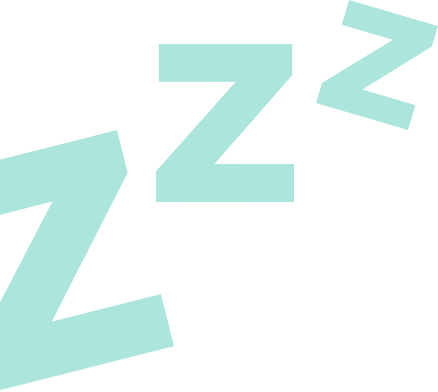10 baby sleep myths busted!
When you’re a new parent, you will discover that everyone has an opinion about your baby and how you are coping – and more often than not they are not afraid to share it! Sleep seems to be one of those areas where other people can’t wait to tell you how it should be done, or how they did it. But how do you work out what is good advice and what is just a myth? We take you through the best and the worst of the sleep tips.
One: When your baby goes to sleep, you should sleep too.
Sounds amazing, right? If you look at how much sleep a baby needs you’ll see that newborns sleep almost all the time. Result! That means it’s no problems for you to bet some shut-eye – right? Well, it’s not as simple as that.
The problem is that babies usually only sleep for very short spaces of time, which means that just as you are getting ready for a nap, they wake up again. Then you have to do the whole routine of feeding, changing again. Then you put them down to sleep again, have a wash, put a load of laundry on, maybe sterilise the breast pump – and they’re awake yet again! But don’t despair, there are ways you can manage a nap or two:
Get help: if your partner is an early riser, enlist him to feed baby with an expressed bottle while you have a lie-in. If you have a friend, or maybe a parent, who will take the baby for a walk in the park, you could take some time out in the afternoon. Try not to use the time catching up on chores in the early days – the baby won’t mind if the house isn’t pristine!
Once your baby gets a bit older, their sleep patterns will become more predictable and eventually they will sleep through the night, so your sleep patterns will improve.
Two: Keep your baby awake during the day so they will sleep more at night.
This one is a definite myth! Babies need those daytime naps right up to around three years. Babies getting overtired can cause them to have the very worst melt-down imaginable. Not to mention that a baby who has been awake much of the day is overstimulated, so will find it hard to get to sleep at night and will probably wake up in the early hours. The better quality the daytime naps. the better their night time sleep will be.
Three: You should not offer a ‘dream feed’.
A 'dream feed' can work for many babies so it IS worth a try. Generally any advice not to disturb baby once they have been put to bed is good advice, but there is one exception – the Dream Feed. This trick for getting better sleep for yourself is to give your baby a late evening sleep at the point when you want to go to bed. So, you’ve put your baby to bed at 7pm, had dinner, watched a bit of TV and now you’re ready for bed? Lift your baby out of their crib, offer a feed and then pop them back in. This works well for very young babies and also for those whose routine has been upset for any reason – teething, illness and so on. If you think about how tiny a new-born's stomach is and you’ll see why they can’t go more than a couple of hours without a feed. You can also ask your partner to do a late feed or a night feed with a bottle of expressed milk, once you have well established breastfeeding which will give you a chance to get an early night and recoup some sleep if you feel you need to!
Four: Putting a baby to bed late will mean they sleep longer in the morning.
This doesn’t really work, as babies need a lot of good quality sleep. Keeping them up late or past their usual night time will probably have the effect of overtiring them and harm their sleep routine. Having said that, some babies do have a natural preference for their sleeping times. While some babies will be early risers, others seem to like to sleep until later, just like we as adults do! Once you have got a bit more used to your baby and to their routines, you’ll get an idea of what they like and dislike and can fit your sleep patterns in around them.
Five: Weaning early makes your baby sleep through.
This advice is not inline with guidance from the World Health Organisation and the NHS, who says you should start to wean at six months. Earlier is not advised due to several things:
- Your breastmilk offers all your baby needs up to six months and protects from infections
- Their mouth, lips and tongue are well enough developed to cope with food and they will cope well with chewing and swallowing. They will also be more capable of trying different foods and textures, and of being able to try to feed themselves.
Some people will tell you to put rice in a bottle of milk or offer a few spoons of food at night but there are good reasons why the six-month stage is suggested. There are some conditions where early weaning might be advised, so speak to your health visitor.
Six: Formula fed babies sleep better than breastfed babies.
This one is definitely a myth. There are reasons why babies sleep well, or don’t; why they might sometimes be unsettled and why they sometimes surprise you by suddenly sleeping through but the way they are fed in not one of them. Establish a good routine, make sure you teach them how to self-settle and all will be well, sooner or later.
Seven: If your first baby isn’t a good sleeper, neither will your next one be
This is a myth, as each child is different. That might mean that your first child is a poor sleeper and then a subsequent one is really well settled. Some put that down to the fact that you are now more experienced as a mother and though some of that might be true, it really is just the case that each child is unique. Some parents have a first child who sleeps well and then are sideswiped by a second who will not settle, no matter what. It may also be true that a first child will get more attention because you’re worried by every tiny sound they make and will pick them up even if they might have settled themselves back to sleep. Don’t compare your children.
Eight: Babies sleep better once they pass the next milestone.
You may be told that your child will sleep better once they are crawling. Or walking. Or weaning. Unfortunately, these milestones may also be accompanied by teething, separation anxiety or another set-back. Whilst it is true that exercise will help them sleep, the fact is that babies gradually settle into a routine and will get better and better at sticking to it – as long as you do.
Nine: Colic stops at three months.
Colic, which is still not fully understood, seems to be a problem where the upper muscle of the stomach is not fully developed and allows some of the gastric acid back into the oesophagus. This stings and burns and babies can be made very unhappy by it and cry for hours at a time. Of course these symptoms won't just stop at three months. Your baby may also be suffering from trapped wind or digestive problems such as an allergy to something you’re eating, also reflux or CMPA which you will need to see a paediatrician or gastroenterologist about. Don’t just ‘wait for it to get better.’
Ten: You need a strict routine which means you can never leave the house at nap time
No! The aim is to establish certain over-arching routines and sleep patterns while also bringing your baby into your life and family. Some writers suggest routines where every element of every day is planned and you can’t deviate from them – try avoid this! You need to be able to go out, to take your baby to play classes, swimming and to meet people. You must have times when you go to the shops, to cafés and restaurants and to visit friends and family. Part of the reason SnoozeShade was invented was to help babies sleep on the go, right from birth. So, don’t worry if some days, your entire day is spontaneous - but do try to have some sense of a nap and bedtime routine generally across a week. Above all, have fun with your little one!






